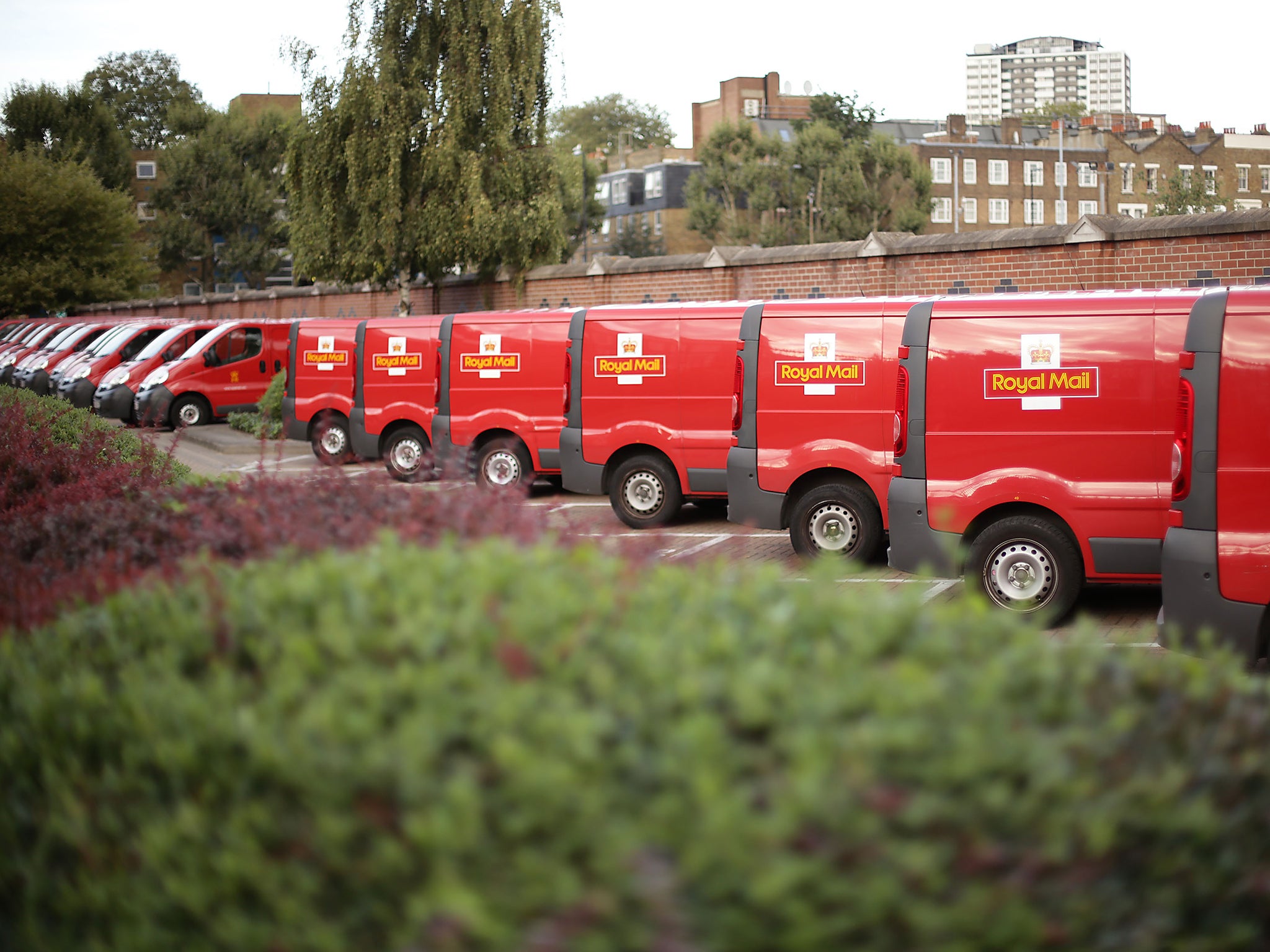Royal Mail faces first national strike since it was privatised
'This ballot result is hugely significant and demonstrates a strength of feeling that can only be translated as a massive vote of no confidence in the managerial leadership'

Your support helps us to tell the story
From reproductive rights to climate change to Big Tech, The Independent is on the ground when the story is developing. Whether it's investigating the financials of Elon Musk's pro-Trump PAC or producing our latest documentary, 'The A Word', which shines a light on the American women fighting for reproductive rights, we know how important it is to parse out the facts from the messaging.
At such a critical moment in US history, we need reporters on the ground. Your donation allows us to keep sending journalists to speak to both sides of the story.
The Independent is trusted by Americans across the entire political spectrum. And unlike many other quality news outlets, we choose not to lock Americans out of our reporting and analysis with paywalls. We believe quality journalism should be available to everyone, paid for by those who can afford it.
Your support makes all the difference.The Royal Mail is facing the threat of the first national strike since it was privatised after workers voted massively in favour of industrial action in a bitter dispute over pensions, pay and jobs.
Members of the Communication Workers Union (CWU) backed walkouts by 89 per cent on a turnout of 73 per cent of the 110,000 balloted.
It passed the threshold in the Government's controversial Trade Union Act, under which ballots need a 50 per cent turnout for industrial action to go ahead.
The CWU believes it is a "watershed" moment for unions as well as the Royal Mail, which it has accused of following a "relentless" programme of cost-cutting to maximise short-term profits and shareholder returns.
The union accused the company of "unilaterally" closing its defined benefit, or final salary, pension scheme, with new entrants going into an "inferior" scheme which will leave them in "pensioner poverty".
The union is also in dispute over pay and issues such as delivery office closures.
The union's deputy general Secretary Terry Pullinger said: "This ballot result is hugely significant and demonstrates a strength of feeling that can only be translated as a massive vote of no confidence in the managerial leadership of the Royal Mail Group and the direction that they advocate.
"Any sense of vocational spirit and working together with management has been lost in a climate of fear and insecurity. This massive failure in trust has created a breakdown in relationships and a toxic environment where working together to solve difficult problems has become almost impossible.
"The managerial leadership has failed and should resign or be sacked. This is a dispute about honour and we refuse to simply stand aside."
General secretary Dave Ward said: "This is a fantastic result for our members and indeed the wider trade union movement. As the first union to test the Trade Union Act we have passed with flying colours. The CWU have tapped into a mood amongst workers in across the UK. Our members are prepared to stand up and fight to protect their terms and conditions and we will do everything within our means to defend them."
The CWU Postal Executive will meet later this week to determine the next steps in this campaign and any potential strike dates.
Royal Mail said it was "very disappointed" by the ballot result, adding that with a 74 per cent turnout, and taking into account frontline employees who are not union members, -57 per cent have backed a strike.
"Royal Mail is committed to further talks as a matter of urgency, to reach agreement with the CWU. There are no grounds for industrial action. We want to reach agreement. In 2013, Royal Mail and the CWU committed to the Agenda for Growth (AFG) - a legally binding agreement. Royal Mail has brought to the CWU's attention the contractual dispute resolution procedures included in the AFG, which both sides are required to follow once instigated.
"They escalate to independent external mediation, which we expect will take close to Christmas to be completed, and may be longer. We believe these dispute resolution procedures must be followed. The union cannot take industrial action until they have been completed.
"Industrial action is damaging for our business. It undermines the trust of our customers. It makes it harder to pay for the great terms and conditions we provide for our employees. National industrial action means the current offer from Royal Mail, including on pensions, will be taken off the table."
Join our commenting forum
Join thought-provoking conversations, follow other Independent readers and see their replies
Comments